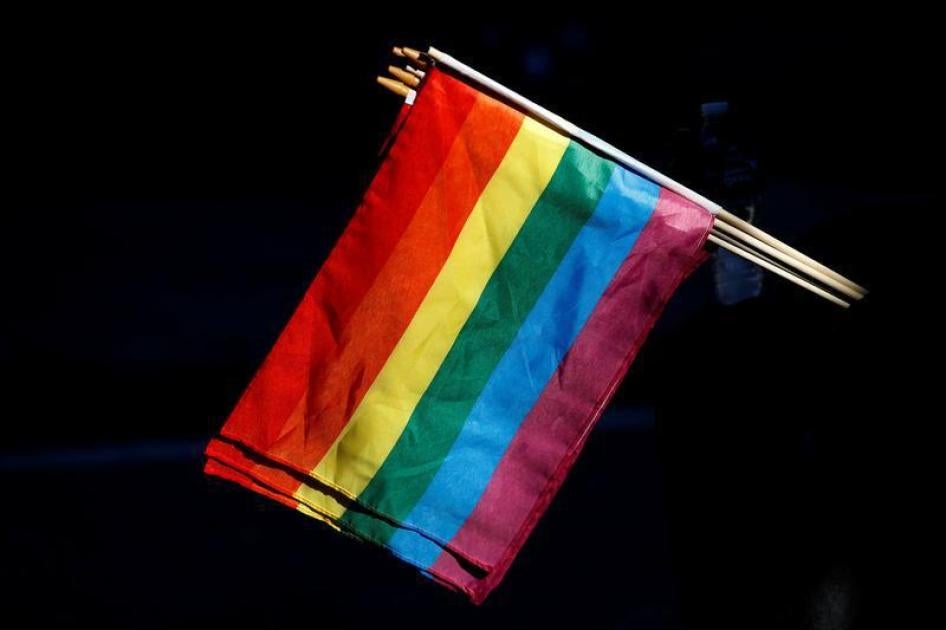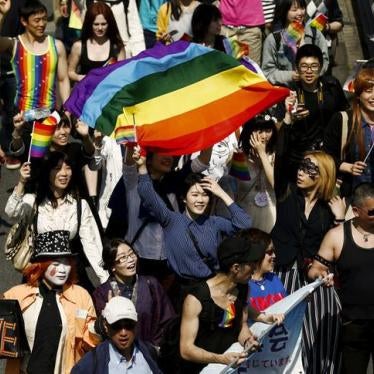Lawmakers around the world have proposed new legislation to ban ‘conversion therapy’ – attempts to change a person’s sexual orientation or gender identity.
In Canada, for example, Prime Minister Justin Trudeau said banning conversion therapy was a “top priority” for his government, while lawmakers in Australia, France, Ireland, New Zealand, and Spain have also called for bans.
The UN’s special rapporteur on torture has said that, in some instances, conversion therapy can “lead to severe and life-long physical and mental pain and suffering and can amount to torture and ill-treatment.” According to the American Psychological Association, ‘conversion’ or ‘reparative therapy’ for LGBT people has been linked to cases of depression, anxiety, and suicidality.
In 2018, the European Parliament called on states to ban these practices – though it did not give guidance on how conversion therapy should be defined or curbed. This is important because the details matter, and a rush to adopt punitive legislation, imposing criminal penalties on non-violent and non-coercive practices as well as abusive ones, has overshadowed the need to support survivors.
Countries are doing the right thing by regulating coercive and harmful ‘gay cures’. But these laws must be based on human rights and offer meaningful solutions for people who are harmed – rather than focusing almost exclusively on penalties for practitioners, which is the path that many countries seem to be following.
In 2016, for instance, Malta became the first country to ban some forms of conversion therapy. Practitioners face fines of up to €5,000 or six months in prison, with stiffer penalties for licensed professionals.
Germany’s parliament recently approved a ban on promoting or providing conversion therapy for under-18s, and made its practice a criminal offence punishable with imprisonment.
Ireland, New Zealand and France are considering criminalising advertising or performing conversion therapy on children and adults, with prison terms for offenders. In Ecuador, conversion therapy practices comparable to torture can be punished with up to thirteen years in prison.
Protecting human rights
While these responses are new, conversion therapy isn’t. It grew in popularity in the 1960s and ’70s, when homosexuality and transgender identity were considered mental disorders and ‘cures’ included counselling, physical punishment and even surgical intervention.
Since then, LGBT identities have been widely recognised as a normal form of human development; the World Health Organisation has declassified ‘homosexuality’ and ‘gender identity disorder’ as mental disorders; and ‘conversion’ attempts have been discredited as ineffective and harmful.
Despite these changes, attempts to ‘cure’ LGBT people persist globally. A key challenge for lawmakers seeking to ban these practices is that they involve a wide range of activities including verbal and emotional abuse, restrictions on movement, physical and sexual assault, talk therapy and religious counselling.
Proposed bans in Ireland and New Zealand do not distinguish between different forms of ‘therapy’, all of which would be criminalised.
Backers of a ban in France have also signalled that they intend it to be sweeping, and for it to expressly regulate religious counselling.
These moves are potentially problematic. To be consistent with human rights principles, such bans must include safeguards for expression, so that speech that is not coercive or abusive isn’t criminalised. Penalties such as incarceration should be strictly proportionate to the harm caused.
Lawmakers certainly can and should ban practices targeting vulnerable individuals, including children. These activities also can be prohibited within therapeutic or commercial settings as fraudulent or unethical.
They can reinforce that message by requiring mental health professionals to learn about the dangers of conversion therapy, and by investing in public educational campaigns against these practices, including in schools.
But they must be clear and precise about what bans prohibit, and careful not to criminalise private opinions about same-sex activity or transgender identities. This would be bad for freedoms of belief and expression – and it could turn campaigners against LGBT rights into martyrs, giving them new platforms.
Supporting survivors
A human rights approach to conversion therapy would not be purely punitive. It would focus on delegitimising conversion therapy practices, holding practitioners accountable for damage they cause, and supporting survivors.
While criminal law is one tool, lawmakers could also expand civil liability for the physical or mental pain and suffering that conversion therapy can inflict.
Taiwan, for example, fines practitioners and suspends their professional licences, and similar penalties have been levied in Brazil. Most of the US states that have banned conversion therapy impose professional disciplinary measures on practitioners, not criminal penalties.
Effectively addressing conversion therapy requires training mental health professionals to affirm a diversity of sexual orientations and gender identities. It means creating and publicising systems for individuals to report abuse. And it means funding and expanding services for survivors, as Germany has.
Eliminating discrimination in practice as well as policy and law, would be a huge factor in reducing the numbers of conversion practitioners’ clients.
Ultimately, the most effective and rights-respecting approach is to bring about a world where efforts to change sexual orientation and gender identity are widely recognised and rejected as a harmful fraud.









